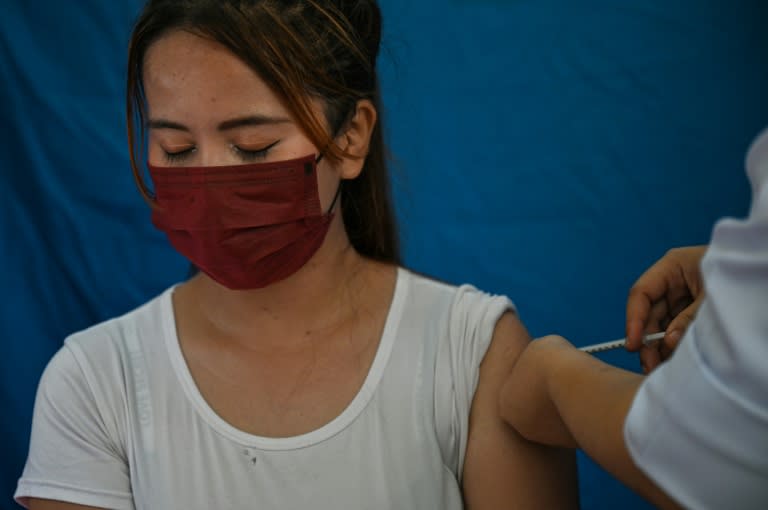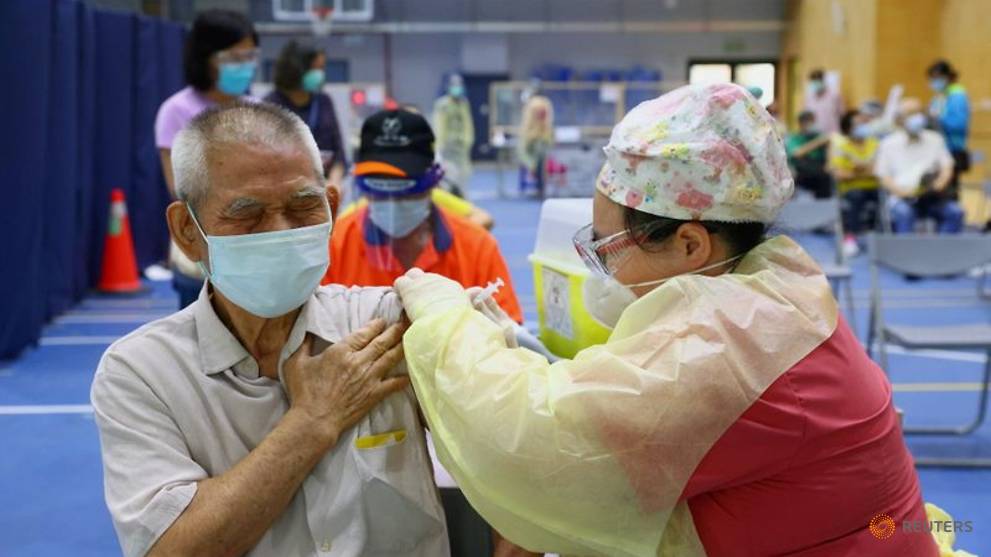SINGAPORE: Two similar events and yet a world apart when it comes to popular sentiment.
On Jul 7, Vietnam marked the delivery of 97,000 doses of the Pfizer vaccine to the country. The delivery ceremony was graced by the country’s Vice Minister of Health and the US Chargé d’affaires. The modest amount is the first batch of 31 million doses that the Vietnamese government has ordered from Pfizer-BioNTech, an American-German tie-up.
Just two weeks earlier, a similar ceremony was held to mark the arrival of 500,000 Sinopharm doses donated by China. Vietnam’s Health Minister and Chinese Ambassador to Vietnam were present.
On balance, there is a semblance of parity in the appropriate levels of protocol and political significance accorded by the Vietnamese government to both events.
Yet, public reactions on both mainstream and social media suggest overwhelmingly negative attitudes towards Chinese vaccines in contrast to their enthusiastic embrace of Western vaccines.
READ: Vietnam receives 2 million COVID-19 vaccine doses as it tackles worst outbreak
This is reflective of the zeitgeist in Vietnam. In general, the populace, in particular younger Vietnamese, is favourably disposed to the United States at a time when bilateral relations are on the uptrend. By contrast, popular attitudes towards Vietnam’s northern neighbour are less salubrious, in part due to the brewing South China Sea disputes.
An examination of reader comments in the country’s most popular newspapers – the mainstream tuoitre.vn and the digital vnexpress.net – bears this out.
In two vn.express and tuoitre.vn articles similarly titled “Vietnam approves Sinopharm COVID-19 vaccine” on Jun 4, very few comments expressed favour for the Sinopharm vaccine. An overwhelming majority said that they would rather wait and pay extra to get their top choices – the Pfizer and US-made Moderna vaccines.
There is also a considerable acceptance of Astra Zeneca, Russian Sputnik and future made-in-Vietnam vaccines. Quality measured in terms of efficacy and safety is cited as the main reason for expressed preferences.
READ: Commentary: Inaccurate public understanding of COVID-19 vaccine efficacy has implications for vaccination rates
DSITRUST AND ANTI-CHINA ATTITUDES
Many readers rejected the Sinopharm vaccine outright, due to visceral anti-China attitudes or an entrenched distrust of made-in-China products.
Only a minority gave considered and informed reasons, such as reports of Chinese vaccines’ lack of clinical trial data, their lower effectiveness compared to the Pfizer and Moderna vaccines, and COVID-19 resurgence in countries that have inoculated with Chinese vaccines such as Bahrain, the Seychelles, Uruguay and Chile.
While expressing their hesitancy towards Chinese vaccines, many Vietnamese support their government’s announcement to give the Sinopharm jabs to only China-related elements, namely Vietnamese people living in border areas with China or engaging in trade and service with China, and Chinese nationals in Vietnam.
According to the Chinese Embassy in Hanoi, this plan was a bilateral consensus to enable the Sinopharm donation to Vietnam.
Yet, in an odd twist of events, the Chinese Embassy in Hanoi on Jun 24 expressed concern that the Vietnamese government had “broken its promise to give priority to Chinese nationals” by planning to distribute the Sinopharm vaccines to its nine northern provinces severely affected by the recent surge.
READ: Commentary: How COVID-19 vaccines are being weaponised as countries jostle for influence
The embassy added that the Chinese nationals should be vaccinated ahead of the other groups, in line with China’s “Spring Sprout” programme which seeks to get its citizens abroad to be inoculated. It is estimated that there are over 500,000 Chinese nationals in Vietnam.
On Jun 25, the Chinese Embassy announced that Vietnam agreed to withdraw its earlier distribution plan after the Chinese complaint. These developments were not publicised on Vietnam’s domestic media and were only reported in the Viet-language programmes of foreign outlets such as the British Broadcasting Corporation (BBC), Radio Free Asia (RFA), Voice of America (VOA) as well as the Global Times.
The public expression of discontent by the Chinese Embassy when it could have been done through quiet diplomacy has only worsened the Vietnamese public’s already low perceptions of China and its vaccine outreach.
They do not see the Sinopharm donation as an act of Chinese generosity but a self-interested move that serves Beijing’s political agenda towards its own nationals overseas while taking advantage of Vietnam’s vaccination logistics.
It also demonstrates the clumsy projection of Chinese soft power overseas despite its leader Xi Jinping’s recent directive to present a “credible, loveable and respectable China” image.
READ: Commentary: Some soul-searching needed in China’s fresh push to make friends and influence people
WARM RECEPTION TOWARDS WESTERN VACCINES
In contrast, the US Embassy’s Facebook post about the Pfizer delivery on Jul 7 garnered more than 1,500 positive reactions within 12 hours (and counting). Most online visitors expressed their thanks in the comments, eliding the fact that the delivery is part of a commercial contract.
Positive reactions to vnexpress.net and tuoitre.vn news articles are also observed. No negative comment was registered, except for some concerns expressed over the storage of the Pfizer vaccines.
There was also a great deal of interest in securing access to the jabs and giving them to high-priority groups and localities. In a related development, a donation of 2 million doses of Moderna vaccines will be arriving in Vietnam shortly, as the Biden Administration scales up its vaccine outreach worldwide.
Prevalent negative public perceptions about Chinese vaccines versus their warm receptivity towards Western ones, together with a genuine concern about the effectiveness of vaccines, partly explain the Vietnamese government’s reluctance to buy Chinese vaccines, except for limited numbers to be used in emergency situations amid the supply crunch.
READ: Commentary: Has China’s vaccine diplomacy worked in unexpected areas?
This is despite the fact that the country is urgently ramping up its vaccination drive amid the latest and most serious wave of COVID-19 infections. Only 3.8 per cent of the 96 million people in Vietnam have been inoculated.
This is the second lowest rate in ASEAN, putting Vietnam just ahead of Myanmar, which continues to grapple with the political crisis resulting from the February coup d’etat.
Ultimately, Vietnam’s determination to keep Chinese vaccines at arm’s length is geopolitical. As noted by some observers, Vietnam will try its best to avoid being beholden to China’s vaccine supplies so as to keep its spine and act in its own interest on the South China Sea disputes – the biggest problem in Vietnam-China bilateral ties.
However, the Chinese brand – be it COVID-19 vaccines, trust between putative Communist comrades or consumer confidence – has a mountain to climb in its immediate southern neighbour.
Hoang Thi Ha is Fellow and Lead Researcher (Political-Security) at the ASEAN Studies Centre of ISEAS – Yusof Ishak Institute. This commentary was first published in ISEAS – Yusof Ishak Institute's Fulcrum.
https://news.google.com/__i/rss/rd/articles/CBMieGh0dHBzOi8vd3d3LmNoYW5uZWxuZXdzYXNpYS5jb20vbmV3cy9jb21tZW50YXJ5L3ZpZXRuYW0tdmFjY2luZS1wZml6ZXItbW9kZXJuYS1zaW5vdmFjLXNpbm9waGFybS11cy1jaGluYS1jb3ZpZC0xNTIxMDkxMNIBAA?oc=5
2021-07-13 22:07:00Z
CBMieGh0dHBzOi8vd3d3LmNoYW5uZWxuZXdzYXNpYS5jb20vbmV3cy9jb21tZW50YXJ5L3ZpZXRuYW0tdmFjY2luZS1wZml6ZXItbW9kZXJuYS1zaW5vdmFjLXNpbm9waGFybS11cy1jaGluYS1jb3ZpZC0xNTIxMDkxMNIBAA



